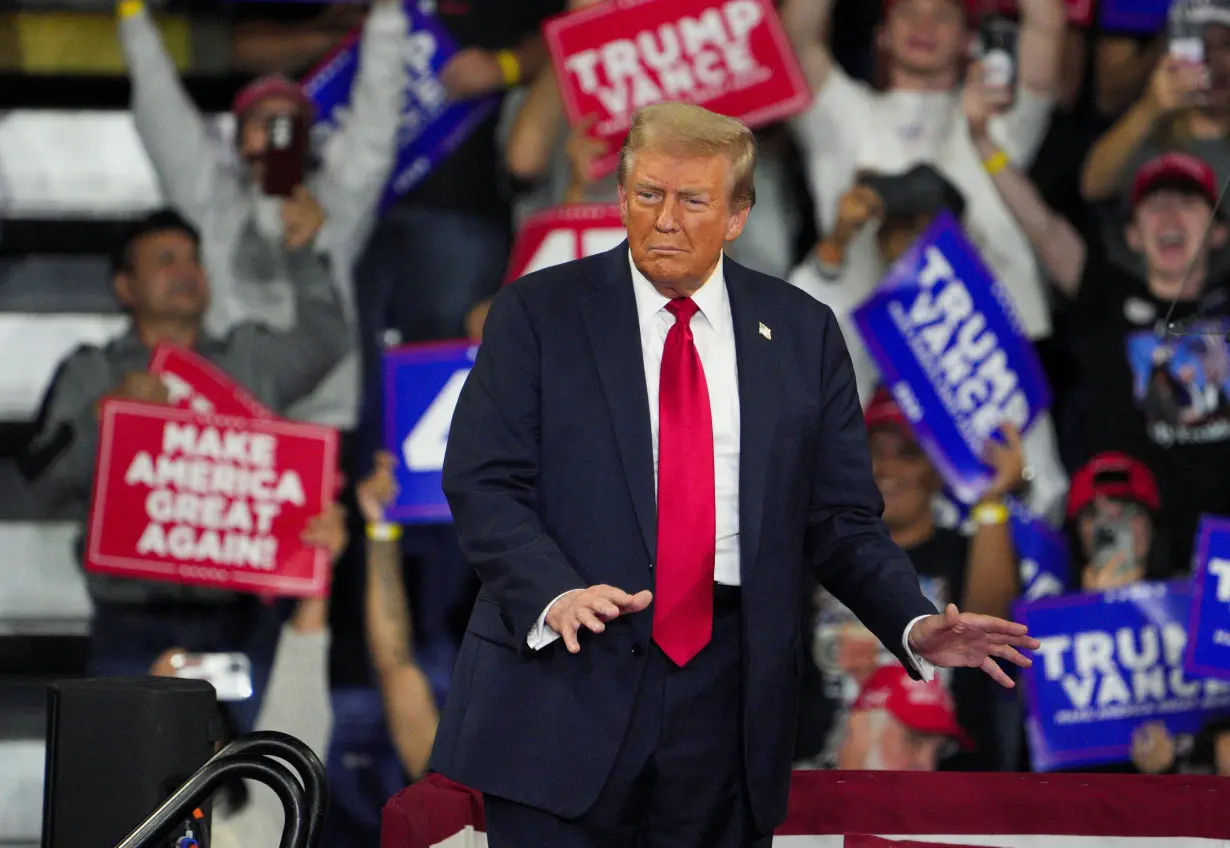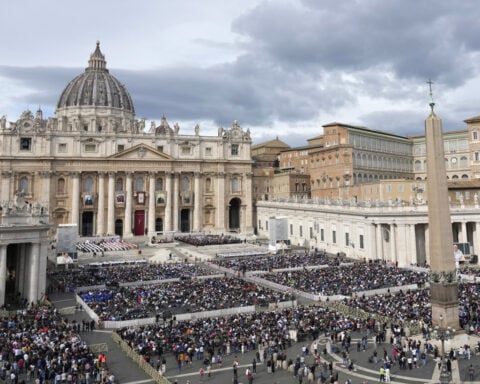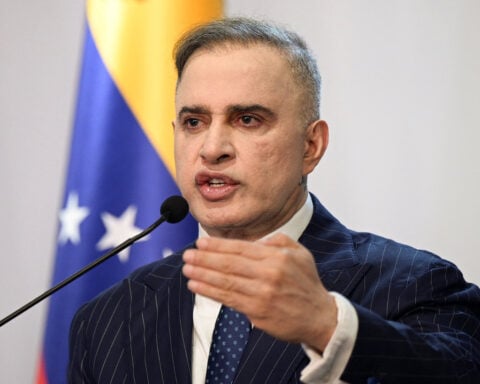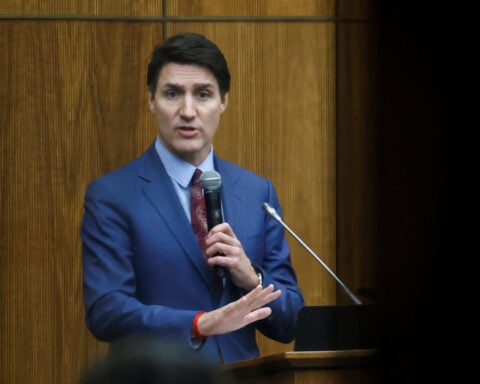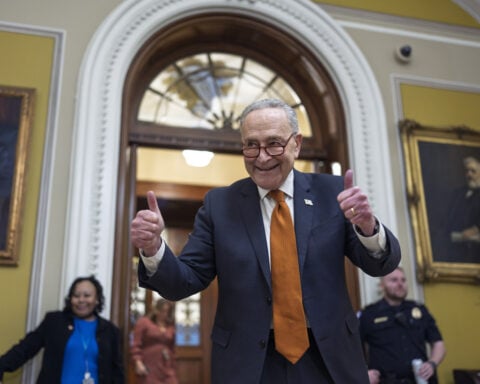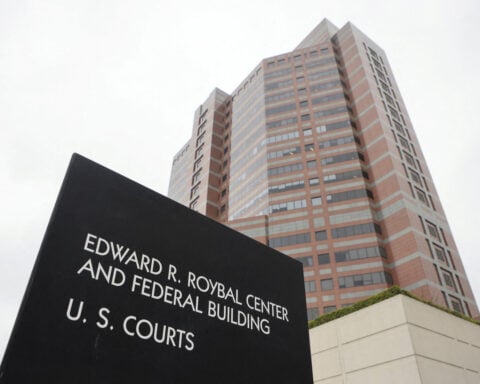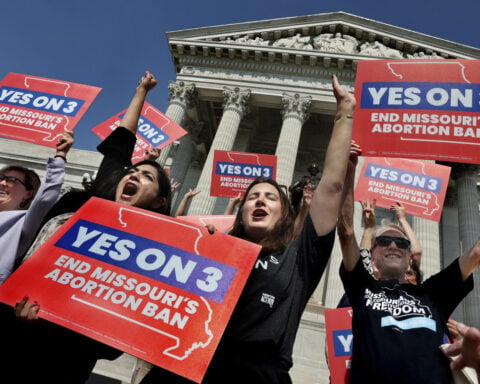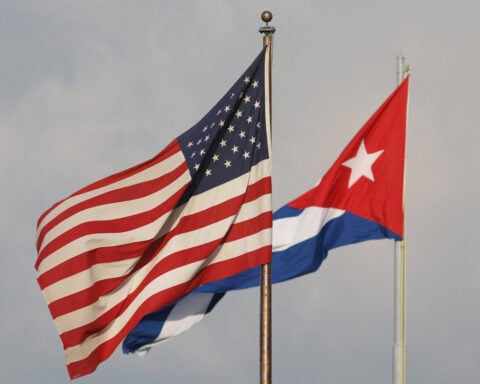WASHINGTON (Reuters) - Donald Trump's campaign has requested the use of military aircraft and vehicles to protect the former president as he campaigns during the final weeks of the presidential campaign, the New York Times and Washington Post reported on Friday.
The request follows two recent assassination attempts against the Republican presidential candidate. It also comes after Trump's campaign last month said he had been briefed by U.S. intelligence officials on alleged threats from Iran to assassinate him.
A representative for the U.S. Secret Service, which is charged with protecting presidential candidates, said "the former president is receiving the highest levels of protection" but confirmed the Trump campaign had requested more.
"The Secret Service will remain vigilant and continue to adjust and enhance its protective posture as needed to mitigate evolving threats," the representative said.
U.S. President Joe Biden, speaking to reporters, said he has authorized security to protect Trump as if he were a sitting president, and if Trump's request falls in that category it should be granted.
Representatives for Trump's campaign did not immediately respond to a request for comment.
According to the New York Times, Trump's campaign has been in contact with White House chief of staff Jeff Zients and acting Secret Service Ronald Rowe asking for military assets to protect the Republican candidate, who is facing U.S. Vice President Kamala Harris in the Nov. 5 presidential election.
Trump's campaign told officials that it has had to move, reschedule or cancel campaign events because of lack of adequate protection, the Times reported, citing four people briefed on the matter.
His campaign also asked for expanded flight restrictions over his homes and campaign rallies as well as prepositioned ballistic glass at events in battleground states, the Washington Post reported, citing emails it had obtained and unnamed sources.
The Office of the Director of National Intelligence has acknowledged the September briefing to Trump but did not confirm any specifics. The alleged shooters in the two separate attempts have no known reported ties to Iran.
The U.S. Secret Service faced widespread criticism after the first assassination attempt against Trump in July that led to the resignation of is director and other security changes.
(Reporting by Jarrett Renshaw, Doina Chiacu, Ismail Shakil, Katharine Jackson, Trevor Hunnicutt, Gram Slattery, Phil Stewart; writing by Susan Heavey; Editing by Doina Chiacu)

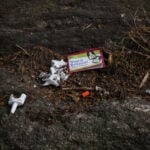 How to save a fentanyl victim: Key facts about naloxone
How to save a fentanyl victim: Key facts about naloxone
 Eight convicted in France over murder of teacher who showed Prophet caricature
Eight convicted in France over murder of teacher who showed Prophet caricature
 Death toll from German Christmas market car-ramming rises to four, Bild reports
Death toll from German Christmas market car-ramming rises to four, Bild reports
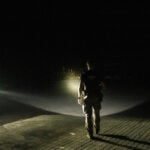 France's Mayotte struggles to recover as cyclone overwhelms hospitals
France's Mayotte struggles to recover as cyclone overwhelms hospitals
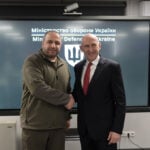 Russia's UK embassy denounces G7 loans to Ukraine as 'fraudulent scheme'
Russia's UK embassy denounces G7 loans to Ukraine as 'fraudulent scheme'
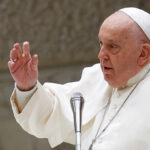 Pope calls Gaza airstrikes 'cruelty' after Israeli minister's criticism
Pope calls Gaza airstrikes 'cruelty' after Israeli minister's criticism
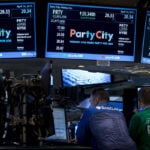 Retailer Party City files for bankruptcy, will wind down 700 stores
Retailer Party City files for bankruptcy, will wind down 700 stores
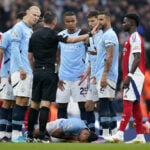 Soccer's top players have had enough, as FIFA's new super-sized tournament sparks a revolt
Soccer's top players have had enough, as FIFA's new super-sized tournament sparks a revolt
 Lindsey Vonn finishes 14th in a super-G to mark her return to World Cup skiing at age 40
Lindsey Vonn finishes 14th in a super-G to mark her return to World Cup skiing at age 40
 Santa and Mrs. Claus use military transports to bring Christmas to an Alaska Native village
Santa and Mrs. Claus use military transports to bring Christmas to an Alaska Native village
